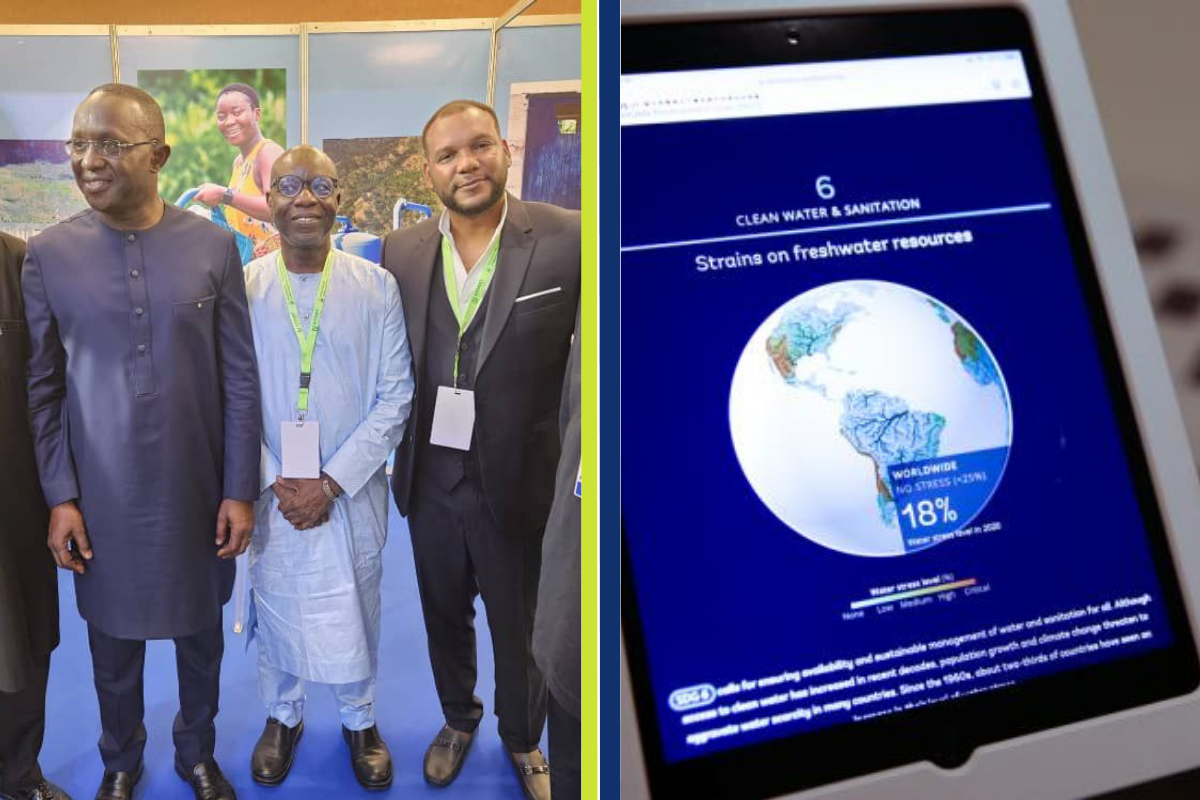
Beyond Data: How Smart Sanitation Systems Can Transform Africa’s Utilities and Urban Planning
The conversation around sanitation in Africa has long been mired in infrastructural challenges, funding gaps, and inconsistent policy execution. However, a fundamental shift is occurring—one that transcends traditional approaches. The real future of sanitation in Africa lies not just in building toilets and treatment plants but in leveraging data to create intelligent sanitation ecosystems. In this evolving landscape, Proficient Projects and Advisory stands at the forefront, offering strategic insights and technical expertise to help African cities and utilities transition into a data-driven future where sanitation is efficient, inclusive, and sustainable.
Sanitation data is often treated as a static metric, collected for reports and regulatory compliance, but rarely used to drive active decision-making. The failure to integrate data into daily operations has led to avoidable inefficiencies, revenue losses, and poor service delivery. According to the World Bank, only 28% of urban African households have access to safely managed sanitation—a figure that underscores the dire need for innovative approaches. Meanwhile, nearly 46% of Africans rely on non-sewered sanitation systems, yet few municipalities have the capacity to monitor and optimize these systems in real time.
At the 22nd African Water and Sanitation Association International Congress and Exhibition (AfWASA ICE2025), the discussion on data-driven sanitation took center stage. Experts outlined how utilities and municipalities must transition from legacy data systems—which often rely on paper-based records and fragmented spreadsheets—toward integrated digital platforms that provide actionable insights. One success story is that of Lusaka Water and Sanitation Company (LWSC), which, by investing in data optimization, reduced turnaround time for faecal sludge collection tracking by over 60% while improving revenue collection and customer satisfaction.
Africa's sanitation challenge is not merely about infrastructure—it is about intelligent service delivery. The cost of inefficiency is enormous. Studies indicate that Africa loses over $4.2 billion annually due to poor sanitation, with cities experiencing repeated sanitation-related health crises. The question, therefore, is how can utilities optimize sanitation services in a way that reduces waste, improves public health, and ensures financial sustainability?
Proficient Projects and Advisory understands that the answer lies in smart sanitation systems—an interconnected web of real-time data collection, AI-driven analytics, and predictive decision-making. With the right framework, utilities can anticipate service needs before crises emerge, track waste disposal routes efficiently, integrate billing with consumption data, and leverage machine learning to predict areas of highest risk for sanitation-related diseases.
In Kenya, Nairobi’s informal settlements have long struggled with unregulated pit latrines, leading to periodic outbreaks of cholera. In response, a smart waste tracking initiative was piloted, employing GPS-enabled faecal sludge trucks that logged real-time disposal data. The results were immediate—illegal dumping decreased by 37%, treatment facilities operated at 85% efficiency (up from 50%), and revenue leakages from fraudulent waste collection reduced by 22%. Such projects, however, require scalable models—and that is where Proficient plays a crucial role. With expertise in digital infrastructure advisory, urban planning analytics, and policy alignment, Proficient ensures that solutions are not just experimental but institutionalized into long-term municipal frameworks.
The challenge many African utilities face is not a lack of awareness but a lack of capacity to transition. Implementing smart sanitation systems demands technical know-how, investment structuring, and governance restructuring. Proficient brings a multi-disciplinary approach, working with governments, development finance institutions, and technology providers to design sanitation data models that integrate with broader urban planning frameworks.
From transforming transportation & mobility to advancing energy solutions, from revolutionizing food & agro-industry to securing water & sanitation for communities, we deliver world-class expertise that shapes the future. At Proficient, we don’t just advise—we engineer impact.
A key issue raised at AfWASA ICE2025 was the incentivization of data adoption. Why should utilities invest in smart sanitation if immediate returns are unclear? The answer lies in performance-based financing models. Countries like Rwanda and South Africa are already experimenting with utility ranking systems, where access to government sanitation subsidies is tied to the quality and frequency of data reporting. Proficient advocates for these models, leveraging its expertise in regulatory advisory and public-private partnerships to help municipalities unlock investment by demonstrating measurable efficiency gains.
But beyond numbers and infrastructure, smart sanitation has a profoundly human impact. Consider the plight of waste collection workers in Lagos, Nigeria, who operate under hazardous conditions, often manually emptying pit latrines in slums. With AI-driven sanitation alerts and digital service coordination, these workers could be deployed based on predictive demand, reducing exposure to hazardous waste and improving workplace safety. Similarly, in Accra, Ghana, integrating sanitation data with public health monitoring has allowed for early detection of cholera-prone zones, enabling targeted health interventions before outbreaks occur.
Yet, while smart sanitation solutions exist, implementation remains uneven. One primary hurdle is interoperability—how do utilities ensure that diverse technologies (IoT sensors, GIS mapping, billing systems, customer service apps) function as a cohesive unit? Proficient's approach involves creating modular, scalable systems that allow municipalities to adopt technology at their own pace without being locked into rigid, high-cost platforms.
Looking ahead, the transformation of Africa’s sanitation landscape depends on visionary leadership, data literacy, and sustained investment in digital infrastructure. The AfWASA ICE2025 discussions made one thing clear: utilities that fail to embrace data-driven sanitation will struggle to meet the growing demands of urbanization. Proficient Projects and Advisory is committed to leading this transformation—helping African governments and municipalities build smarter, more resilient sanitation systems that not only solve today’s challenges but anticipate tomorrow’s needs.
The future of sanitation in Africa is not just about access—it is about intelligent management, financial viability, and human dignity. Proficient is not just an observer in this journey—it is an architect of the solutions that will redefine sanitation in Africa for the next generation.



